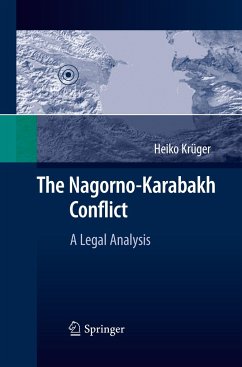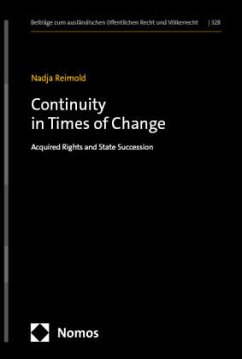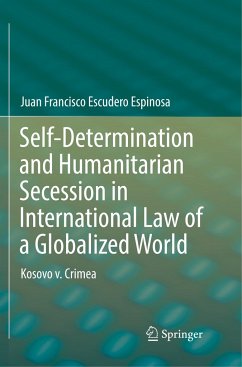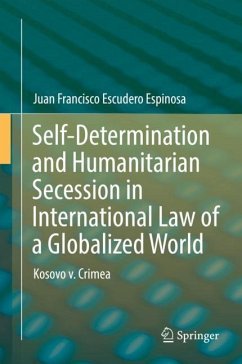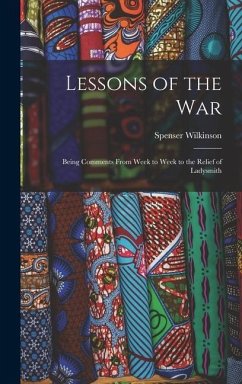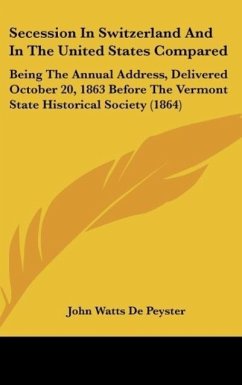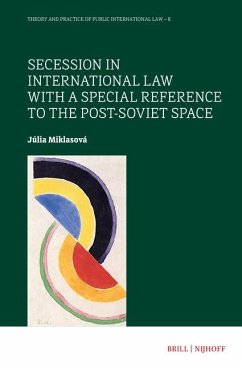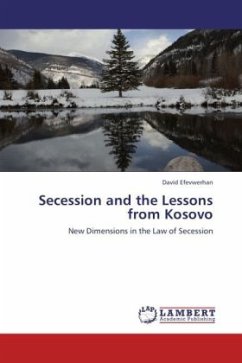
Secession and the Lessons from Kosovo
New Dimensions in the Law of Secession
Versandkostenfrei!
Versandfertig in 6-10 Tagen
52,99 €
inkl. MwSt.

PAYBACK Punkte
26 °P sammeln!
The secession of Kosovo from Serbia generated a lot of controversies among academics and policy makers. This was due to the absence of a clear-cut position on secession as an exercise of the right to self-determination in international law, the lack of an acceptable definition of people for the exercise of the right to external self-determination, and the legality of the Kosovo secession in international law. This book examines the twin principles of self-determination and secession in international law, using the Kosovo secession as a case study. It draws from established rules; past secessio...
The secession of Kosovo from Serbia generated a lot of controversies among academics and policy makers. This was due to the absence of a clear-cut position on secession as an exercise of the right to self-determination in international law, the lack of an acceptable definition of people for the exercise of the right to external self-determination, and the legality of the Kosovo secession in international law. This book examines the twin principles of self-determination and secession in international law, using the Kosovo secession as a case study. It draws from established rules; past secession cases in the cold war and post-cold war era; and concludes that there is no international law right to secession but that in exceptional cases, secession is recognized as a remedial solution to self-determination disputes. A critique of the ICJ ruling that the Kosovo secession did not violate any norm of international law is also undertaken. Finally, a functional definition of "people" is proposed in addition to an emergent concept of "supervised secession".



